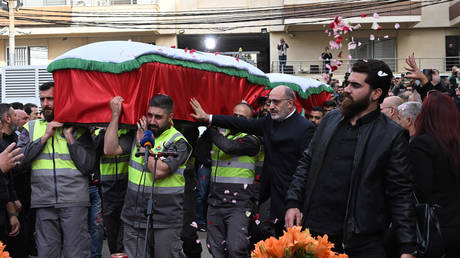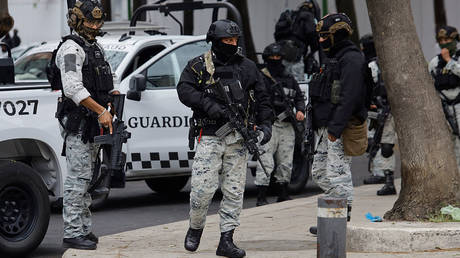
At least 57 reporters, predominantly Palestinians, were killed in the war, according to the Committee to Protect Journalists
At least 57 journalists and media workers were killed amid the ongoing hostilities between the Palestinian militant group Hamas and Israel, the latest statistics by the Committee to Protect Journalists (CPJ), a New York-based non-profit, show.
As of November 25, some 57 journalists were confirmed dead, the CPJ said in a status update, while another three are reported missing. The casualties are predominantly Palestinian, with 50 local media workers killed primarily in Israeli air strikes, the statistics indicate. The rest of the confirmed casualties include four Israeli and three Lebanese journalists, according to the NGO’s figures.
The first day of the conflict turned out to be, thus far, the deadliest one for media workers, with six of them killed. November 18 was the second one, with five journalists confirmed killed.
Reporters working in the Gaza Strip are facing particularly high risks since “they try to cover the conflict during the Israeli ground assault, including devastating Israeli airstrikes, disrupted communications, supply shortages, and extensive power outages,” the CJP stressed.
“Journalists across the region are making great sacrifices to cover this heart-breaking conflict. Those in Gaza, in particular, have paid, and continue to pay, an unprecedented toll and face exponential threats. Many have lost colleagues, families, and media facilities, and have fled seeking safety when there is no safe haven or exit,” Sherif Mansour, CPJ’s Middle East and North Africa program coordinator, said.
The CPJ noted the Israeli Defense Forces (IDF) had previously refused to guarantee safety to reporters with Reuters and AFP working in the combat zone when the two leading news agencies approached it with such a request.
At least 11 journalists were reported injured, and another 19 ended up arrested, the CJP noted. Apart from that, numerous media workers were subjected to censorship, assaults, threats, cyberattacks, and even the killing of family members, it said.




